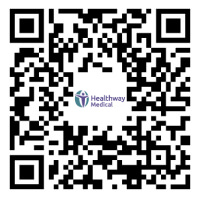
Your little bundle of joy has arrived, and you’re thrilled to start this new journey of motherhood! That’s what most new mothers may expect to feel after delivery, but this may not be the case for all mothers.
What are the Baby Blues, or Postnatal Depression?
It is not uncommon for mothers to experience sudden mood dips and tearfulness some 2 to 3 days after childbirth. Alongside this rollercoaster of emotions, some also become anxious, irritable, and experience difficulty resting, despite the sheer exhaustion of having just delivered. This phenomenon is known as “baby blues” and resolves on its own in about 2 weeks.
While we are uncertain about the exact causes of “baby blues”, hormonal fluctuations, emotional reactions to the experience of childbirth, and the myriad of adjustments that need to be made to having a new-born are possible contributors.
Postnatal depression, on the other hand, is more intense and longer-lasting. It is a medical condition that requires specialised treatment. Left on its own, postpartum depression can persist and negatively affect a mother’s ability to care for her child and general functioning.
What causes postnatal depression? Are some people more at risk?
There are many factors that contribute to the occurrence of postnatal depression.
Broadly, these include physical factors, such as female and thyroid hormone changes, sleep deprivation, pain and emotional factors (e.g. loss of personal identity, sense of loss of control, inexperience with childcare etc.) Certainly, experience with childbirth, and caring for a newborn are protective factors. However, postnatal depression can occur after the birth of any child, not just the first.
Mothers who have a history of depression – postpartum or otherwise; bipolar disorder; family history of depression or other mood disorders are more at risk.
Other risk factors include stressful life situations like financial difficulties, spousal conflict, inadequate support system etc; childbirth resulting from unplanned/unwanted/difficult pregnancies; multiple births and child-caring challenges e.g. baby with health issues.
How can you tell if you are experiencing postnatal depression?
Postnatal depression usually develops within the weeks following delivery, and it is a medical condition that requires treatment. It is important to note that it may also occur earlier during pregnancy, or even later, up to a year after childbirth.
Postpartum depression signs and symptoms can include:
- Depressed mood or severe mood swings
- Reduced interest and pleasure in previously enjoyed activities
- Excessive tearfulness, irritability, anger outbursts
- Anxiety, restlessness
- Lowered energy levels or getting tired easily
- Sleep disturbances e.g. inadequate sleep or sleeping too much
- Appetite changes
- Shunning social interactions with significant others
- Difficulty bonding with the newborn
- Being unable to concentrate or think clearly, forgetfulness
- Feelings of hopelessness, worthlessness, inappropriate guilt, shame or inadequacy as a parent
- Thoughts of self harm or harming the baby
- Recurring thoughts of death or suicide
If thoughts of self-harm, suicide or harming the baby are present, it is important to inform the spouse and seek help immediately.
Is there a way to treat this depression?
The best strategy for treatment of postnatal depression is prevention and early detection.
Working closely with one’s obstetrician and psychiatrist through pregnancy planning, pregnancy itself and in the post-delivery period will be important if a mother has a history of depression or postnatal depression. This will allow the doctors to monitor her mood and advise appropriate strategies. These can range from attending support groups, psychological therapy, to anti-depressant medications to help with the depressive/anxiety symptoms. Close, regular follow-up sessions with the doctors can also help detect physical problems e.g. thyroid disorders that can affect one’s energy levels and mood.
If a mother is breastfeeding, medications that are safe for the newborn are available too. If medication is prescribed, it will be important to adhere to the doctor’s instructions and not to stop prematurely just when one starts feeling better.
What can you do to help yourself/your partner overcome this?
While the arrival of a newborn can be a very exciting time for the family, with most of the attention devoted to its care, this is also a crucial time for the mother and partner to focus on self care.
It may be less discussed, but fathers can develop postnatal depression too.
Do ensure the parents get as much rest as possible. Good nutrition and having some time for exercise at appropriate intensity help too. Caring for a child is a division of labour. A parent should not have to feel guilty when taking time out to rest or engaging in personal pursuits. Accept whatever help is offered. While it can be tempting to have a tipple, alcohol is best avoided as this can make mood swings more pronounced.
Common misconceptions about the condition
- Postnatal depression is not an indicator that an individual is a poor or unfit parent. This is certainly not a sign of weak or flawed character.
- Postnatal depression is a medical complication of childbirth. Like any other illness, prevention and early treatment can help a parent regain his/her health earlier and handle the role of parenthood better.

Dr Marcus Tan
Consultant Psychiatrist
Nobel Psychological Wellness Clinic
Our Specialist
Dr Marcus Tan is a Consultant Psychiatrist and group director of Nobel Psychological Wellness Clinic. He is trained in geriatric, military, child and adolescent and liaison psychiatry with special interests in mood and anxiety, psychotic and stress disorders.









